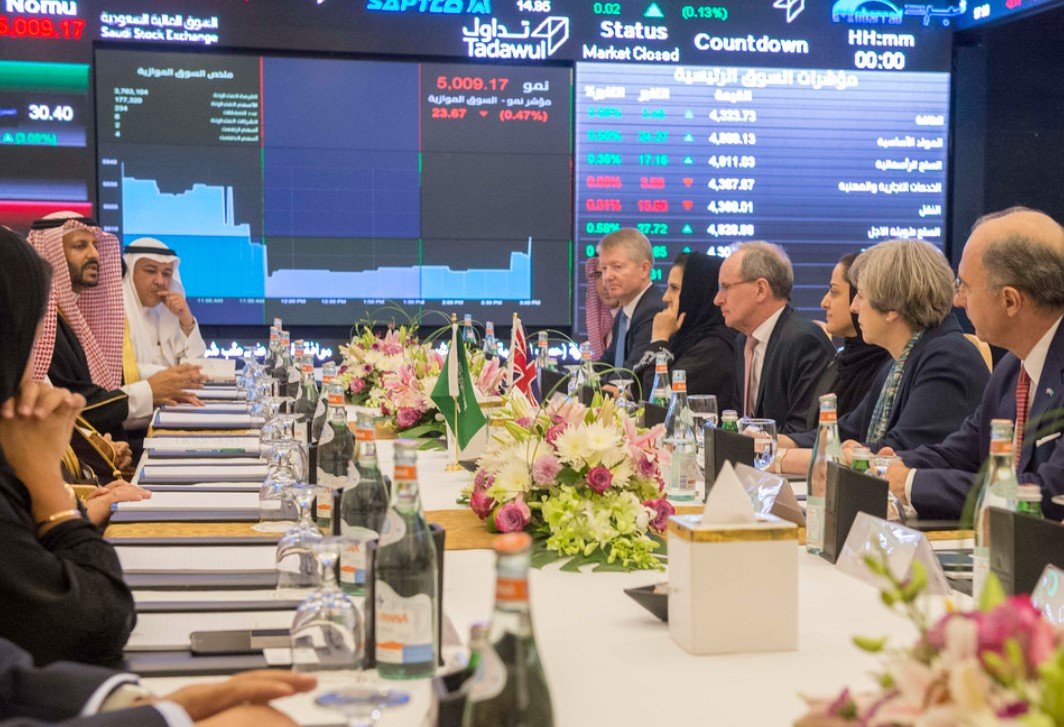In a day marked by significant market fluctuations, the Saudi Stock Exchange (Tadawul) closed lower, shedding 102.53 points to settle at 12,271.77 points. The total trading value reported was SAR6 billion, reflecting investor caution amid global economic uncertainties. Despite the main index’s decline, the Saudi Parallel Market Index (NOMU) managed to gain 83.19 points, closing at 25,610.66 points, indicating mixed sentiments among investors.

Market Performance and Investor Sentiment
The Saudi Stock Exchange experienced a turbulent trading session, with the main index losing ground due to a combination of domestic and international factors. Investors were particularly cautious following recent fluctuations in global oil prices, which have a significant impact on the kingdom’s economy. The decline in the main index was also influenced by profit-taking activities, as investors sought to lock in gains from previous sessions.
Despite the overall decline, certain sectors showed resilience. The banking and financial services sectors, in particular, managed to post modest gains, buoyed by strong quarterly earnings reports. However, the energy and industrial sectors faced headwinds, contributing to the overall market downturn. Analysts suggest that the mixed performance across sectors reflects the ongoing uncertainty in the global economic landscape.
The parallel market, on the other hand, showed a positive trend, with several small and medium-sized enterprises (SMEs) recording gains. This indicates a growing investor interest in the parallel market, which offers opportunities for higher returns albeit with higher risks. The NOMU’s performance highlights the diverse investment strategies being employed by market participants.
Economic Factors Influencing the Market
Several economic factors played a role in the Saudi Stock Exchange’s performance. The recent volatility in global oil prices has been a major concern for investors, given Saudi Arabia’s significant reliance on oil revenues. Fluctuations in oil prices can have a direct impact on the kingdom’s fiscal stability and economic growth prospects. Additionally, geopolitical tensions in the region have added to the market’s uncertainty, prompting investors to adopt a cautious approach.
The kingdom’s efforts to diversify its economy under the Vision 2030 initiative have also influenced market dynamics. While there have been significant strides in reducing dependence on oil, the transition to a more diversified economy is still ongoing. Investors are closely monitoring the progress of various economic reforms and their potential impact on different sectors. The government’s commitment to economic diversification is seen as a positive long-term factor, but short-term market reactions can be volatile.
Furthermore, global economic conditions, including inflationary pressures and interest rate hikes by major central banks, have affected investor sentiment. The interplay of these factors has created a challenging environment for the Saudi Stock Exchange, leading to fluctuations in market performance. Analysts emphasize the importance of a stable macroeconomic environment to support sustained market growth.
Future Outlook and Investor Strategies
Looking ahead, the future outlook for the Saudi Stock Exchange remains cautiously optimistic. Market analysts believe that the kingdom’s ongoing economic reforms and diversification efforts will yield positive results in the long run. The Vision 2030 initiative, which aims to transform Saudi Arabia into a global investment hub, is expected to attract more foreign investment and boost economic growth.
In the short term, however, market volatility is likely to persist. Investors are advised to adopt a diversified investment strategy to mitigate risks and capitalize on potential opportunities. The performance of the parallel market suggests that there are still lucrative investment prospects, particularly in the SME sector. As the kingdom continues to implement its economic reforms, sectors such as tourism, entertainment, and technology are expected to offer new growth avenues.
Analysts also highlight the importance of monitoring global economic trends and their potential impact on the Saudi market. Factors such as oil price movements, geopolitical developments, and monetary policy decisions by major economies will continue to influence investor sentiment. A proactive approach to risk management and a focus on long-term investment goals are recommended for navigating the current market landscape.
